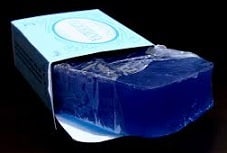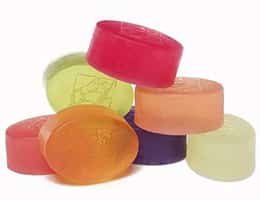 The union of the Greek word glykerós (which can be translated as "sweet" ) and the suffix -ine came to French as glycérine , which in our language became glycerin . The concept refers to a thick alcohol found in fatty bodies .
The union of the Greek word glykerós (which can be translated as "sweet" ) and the suffix -ine came to French as glycérine , which in our language became glycerin . The concept refers to a thick alcohol found in fatty bodies .
It should be remembered that an alcohol is an organic compound that has a hydroxyl group linked to an aliphatic radical or one of its derivatives. Hydroxyl groups are radicals formed by an oxygen atom and a hydrogen atom; Aliphatic molecules, meanwhile, have an open chain structure.
In the case of glycerin, the substance has three hydroxyl groups . At room temperature, it appears as a colorless liquid with a high viscosity coefficient. Glycerin is found in phospholipids and triglycerides and is one of the products of alcoholic fermentation.
All plant and animal oils and cells contain glycerin. The substance has multiple uses at an industrial level.
Most soaps, various syrups, antifreezes, lubricants and varnishes , for example, contain glycerin in their composition. Glycerin also has widespread use in the manufacture of explosives.
However, it is important to note that there is glycerin soap itself, which is made with the so-called glycerin base soap. It is a mixture of this and other compounds that differs from vegetable glycerin. Although there are many people who make it at home, most buy it at the pharmacy, supermarket or beauty stores. This product has a series of excellent skin care properties, and that is why it is the most recommended by dermatologists .
In the eternal search for products that keep the skin hydrated, beautiful, young and healthy, we often find ourselves with excessive mixtures of synthetic chemical components, which harm us more than they benefit us. To avoid this, there are those who combine several products, each one with fewer but more defined properties; However, glycerin soap is the best option, given the purity of its composition , which allows us to use it every day without worrying.
One of the most notable characteristics of glycerin soap is that its PH is neutral, that is, its acidity is similar to that of our skin. In other words, we should not fear that he will mistreat her. In addition, it is suitable for any type of skin: sensitive, dry, oily or normal, and can even be used in case of skin disease .
 The skin is kept moist by using glycerin soap, making it especially beneficial for treating dryness. In the case of the face, for example, when washing it with a regular soap it tends to be too dry, while with a glycerin soap it retains its natural moisture .
The skin is kept moist by using glycerin soap, making it especially beneficial for treating dryness. In the case of the face, for example, when washing it with a regular soap it tends to be too dry, while with a glycerin soap it retains its natural moisture .
On the other hand, as mentioned above, oily skin also benefits through the use of glycerin soap: let's not forget that the solution does not consist of drying the skin, but rather stopping excess sebum production. In this framework, glycerin deeply cleanses the skin and normalizes oil levels. In a short time, the face regains its healthy appearance, without too much shine.
The nitration of glycerin (that is, the addition of a nitro group to the compound) allows the production of nitroglycerin , an oily liquid that functions as a high-power explosive. Dynamite is made with nitroglycerin and other substances.
Nitroglycerin is also used in pharmacology . In this context, it helps treat hypertension since it has vasodilating properties, helping to relax arteries and veins.
